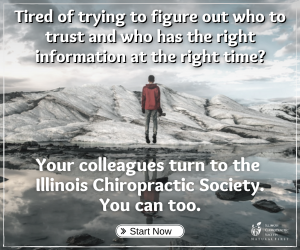
Are You Using Social Media Compliantly in Your Practice?

Social media has become integral to our daily lives, transforming how we communicate, share information, and connect with others. Chiropractic practices have recognized the importance of engaging with patients and the public through social media platforms. While the benefits of using social media in healthcare are numerous, healthcare professionals and organizations must employ responsible and ethical practices when navigating this digital landscape.
Patient Confidentiality
One of the foremost responsibilities of healthcare practitioners on social media is to protect patient confidentiality. Sharing patient information, even unintentionally, can lead to severe legal and ethical consequences. To maintain patient privacy: (The HIPAA Journal, 2024)
- Avoid discussing specific patient cases: Never post identifiable information about patients, including their names, photographs, or other identifying details. Even general descriptions should be avoided to prevent potential breaches.
- Seek informed consent: If you wish to share a patient’s story or experience, obtain explicit consent from the patient beforehand. Ensure they understand the implications and consequences of sharing their information on social media.
- HIPAA and social media cases are on the rise. In October 2019, a dental practice was fined $10,000 for impermissibly disclosing PHI on a social media review site, while in January 2016, a nursing assistant was fired from her job and sentenced to 30 days in jail for posting a video of a patient online.
Provide Accurate Information
Healthcare professionals are responsible for providing accurate and reliable information to the public. Misleading or false information can harm patients, erode trust, and tarnish the reputation of healthcare organizations. To provide accurate information:
- Cite reputable sources: Always verify the credibility of sources before sharing medical information or advice. Use peer-reviewed journals, official medical guidelines, or information from recognized healthcare institutions.
- Fact-check before posting: Take the time to fact-check any medical claims or statistics before sharing them on social media. Misinformation can have real-world consequences.
- Correct mistakes promptly: If you discover you’ve shared incorrect information, correct it promptly and transparently. This demonstrates your commitment to accuracy and integrity.
Maintain Professionalism
Social media platforms are public spaces where chiropractic physicians represent themselves, their organizations, and the chiropractic profession. To maintain professionalism:
- Set clear boundaries: Distinguish between personal and professional accounts. Use separate profiles for professional content to maintain formality and focus on healthcare-related topics.
- Use a respectful tone: Engage with others respectfully, even in the face of criticism or differing opinions. Maintain a courteous and professional demeanor at all times.
- Avoid conflicts of interest: Disclose any financial relationships or conflicts of interest that could affect the credibility of your content.
Foster a Positive Online Presence
A positive online presence can enhance a healthcare practice’s reputation, attract patients, and foster trust within the community. To cultivate a positive presence:
- Engage with the community: Actively participate in conversations related to healthcare topics, answer questions, and provide valuable insights.
- Share educational content: Regularly share educational and informative content, such as articles, videos, or infographics, that benefit your audience and showcase your expertise.
The responsible use of social media in chiropractic practices is a balancing act that requires careful consideration of patient privacy, accuracy, professionalism, and community engagement. By adhering to ethical guidelines and best practices, chiropractic physicians can harness the power of social media to educate, inspire, and connect with patients while upholding their commitment to patient care and privacy. When used responsibly, social media can be a valuable tool for enhancing healthcare communication and patient outcomes.

















